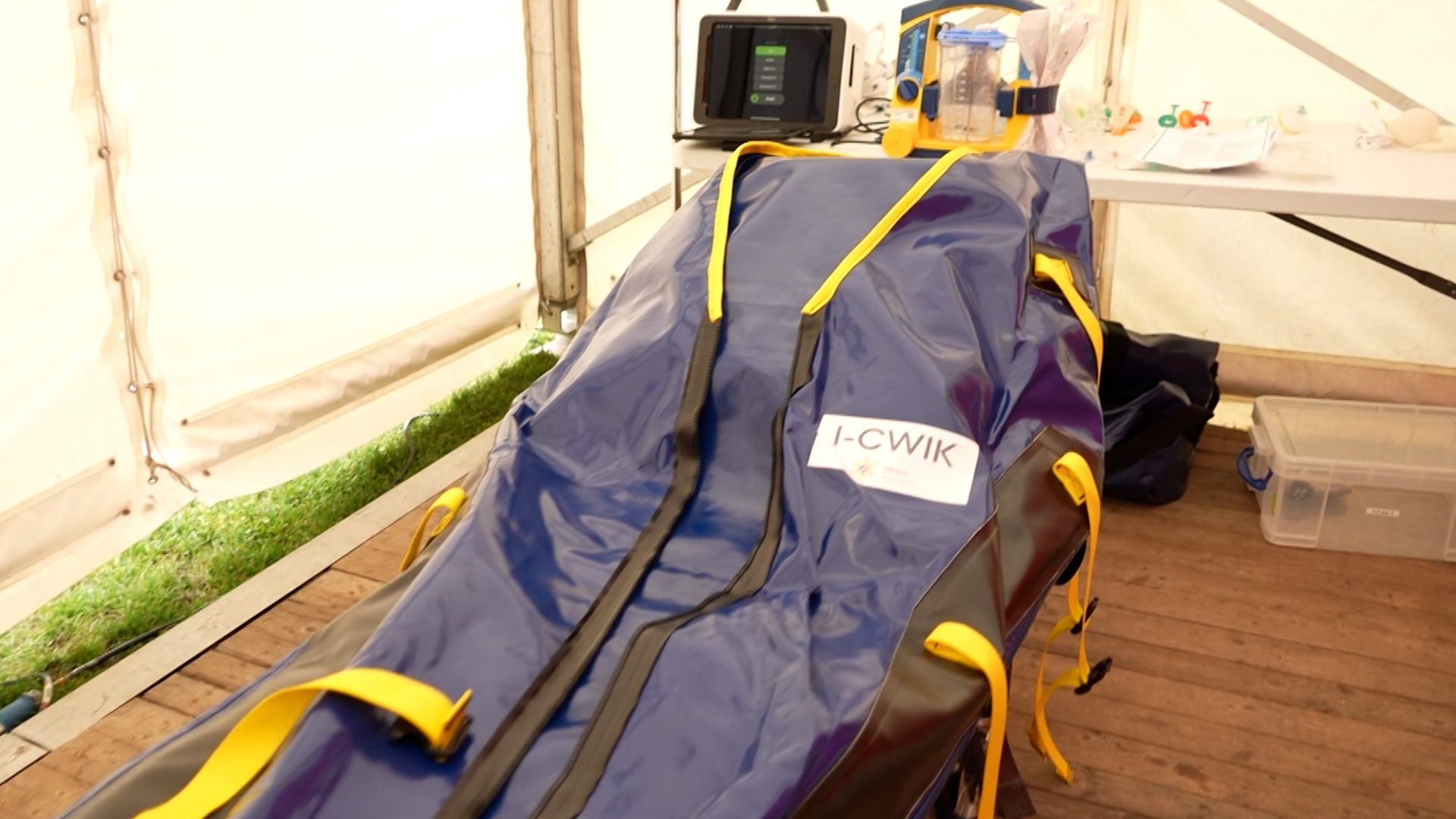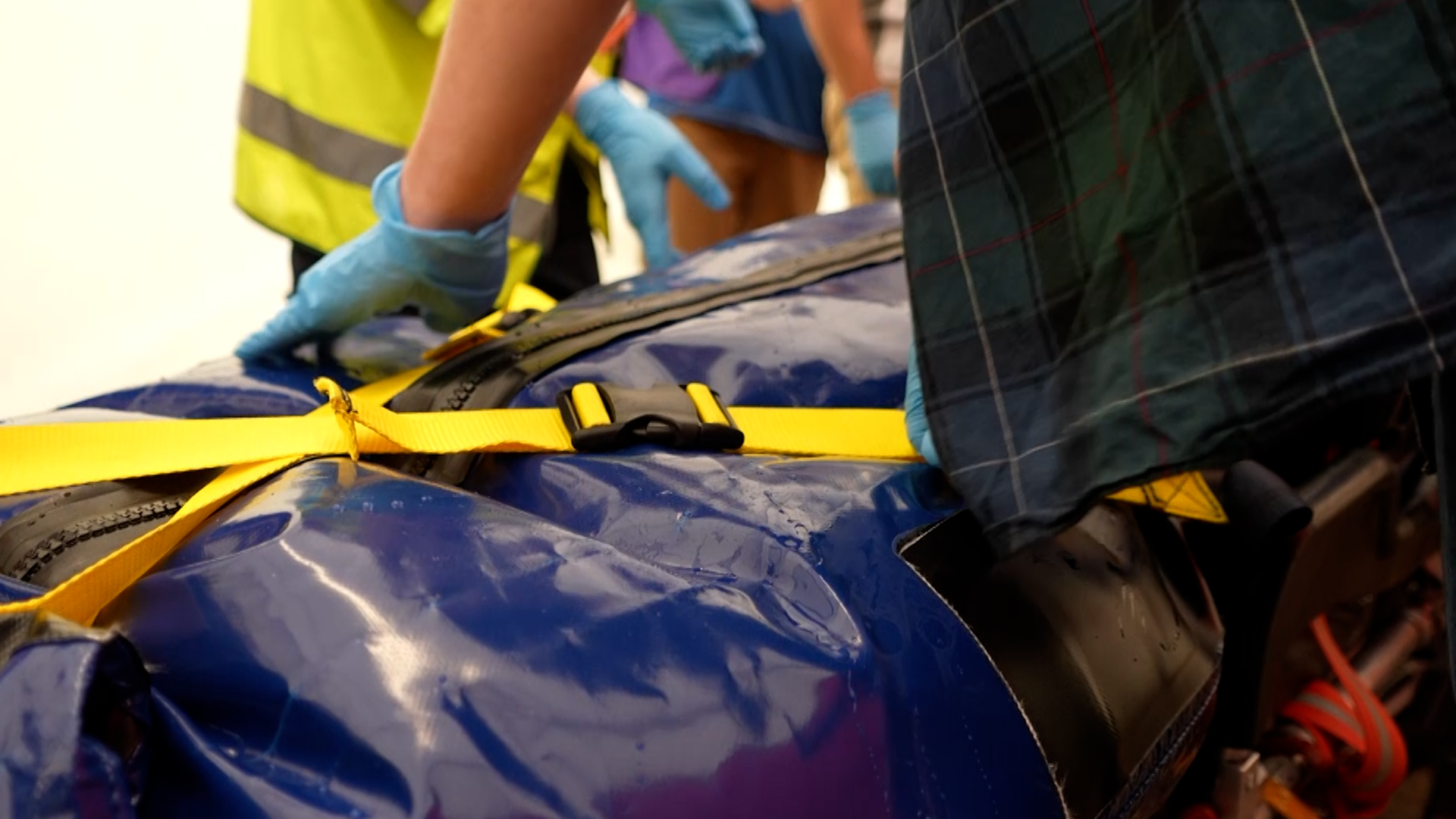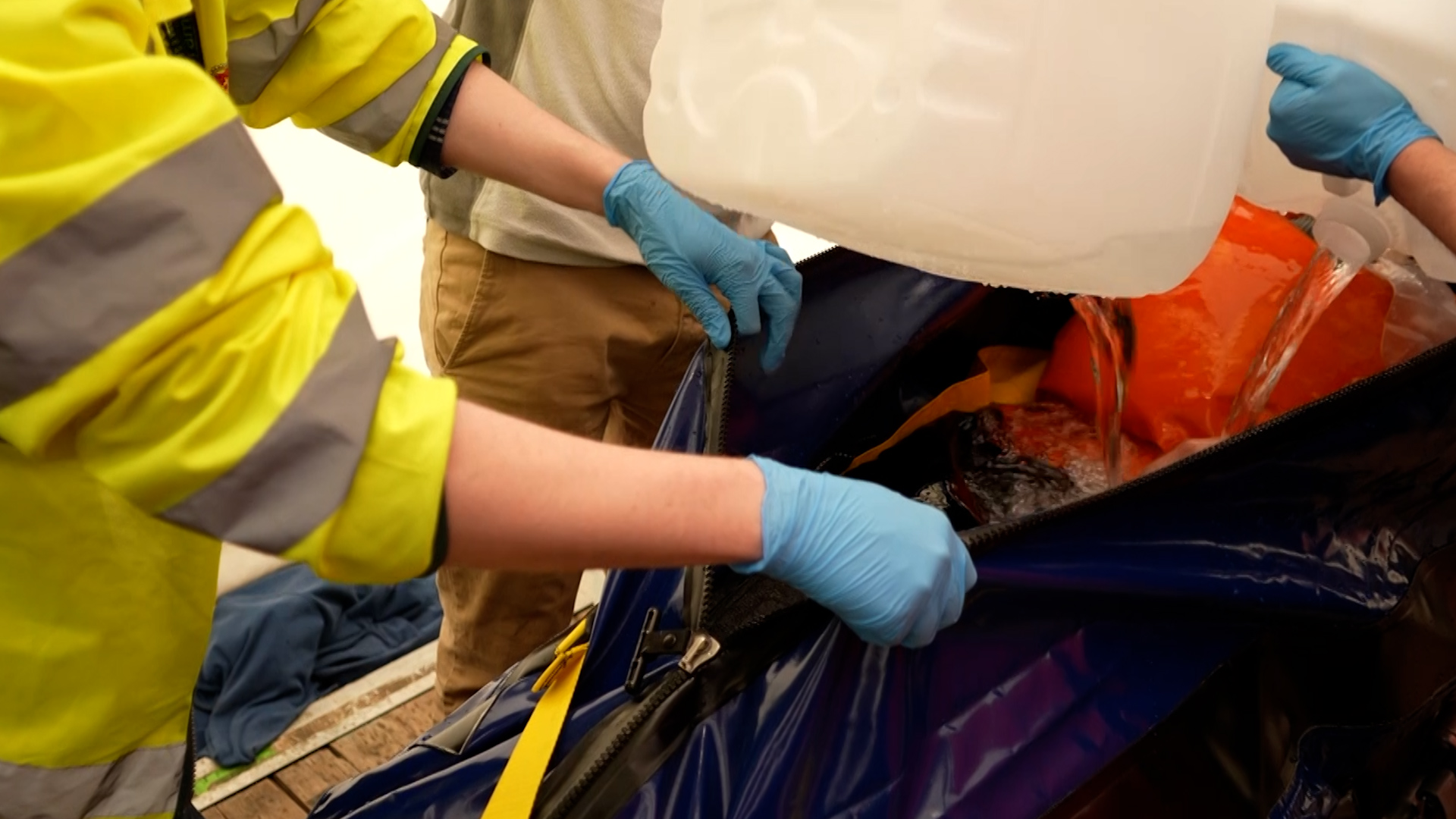Royal Marines-designed ice body bag used to save runners' lives at Brighton Marathon
An 'ice body bag' devised by the military has been used at this year's Brighton Marathon to treat four people suffering with life-threatening cases of heat illness.
The Ice-Cold Water Immersion Kit, or I-CWIK, is a portable, robust PVC bag for use in environments and situations where the risk of heat illness is increased.
It was developed at the Commando Training Centre Royal Marines at Lympstone to try to reduce deaths caused by the condition.
During a training run on 21 July 2022, 20-year-old Sapper Connor Morrison of the 23 Parachute Engineer Regiment collapsed and later died.
A Defence Safety Authority report found that medics and other soldiers failed to treat him in time.
Spr Morrison is the most recent in a long line of casualties and tragic deaths as a result of severe heat illness.
It is something that has plagued military populations for years and, with rising global temperatures, the situation is worsening.
Death from heat illness can also happen in relatively cold temperatures.

"It's not that efforts haven't been made," Lieutenant Colonel Mike Stacey from the Royal Centre of Defence Medicine told Forces News.
"It's that it's a really difficult equation to try and solve… and it's front rank really in terms of research priorities in defence."
I-CWIK's founder, Doctor Ross Hemingway of the Commando Training Centre Royal Marines, says he got into research in this area almost through necessity, from the increased incidences of heat illness during his posting at the facility in Lympstone in Devon.
They began using an American bag to cool patients before he decided to create a design of his own.

The Process
The bag, which can fit anyone from a small runner to an NFL player, is quite simple and follows a straightforward process.
As soon as an individual is identified as suffering potential heat illness, they are placed in the bag.
A temperature probe is inserted into their rectum and as soon as their temperature exceeds 40°C, the medical team springs into action, pouring jerry cans of ice-cold water into the bag, submerging the patient's body.
The bag is zipped and straps pulled across, and medics then massage it to keep the cold water constantly circulating around the casualty.

On the surface, dealing with heat illness by cold water submersion sounds obvious – but until now it has not been widely used as healthcare professionals have been fearful of putting a critically ill patient in a bag of ice-cold water.
Worldwide consensus now shows this is the gold standard treatment, and the quicker a patient can be cooled, the greater their chance of survival and the lower the risk of damage to their organs.
"There's a paradigm shift that we've got to implement and that is cool first, transport second," Dr Hemingway said.
"What we don't want is somebody who has exertional heat stroke, who has a very high core body temperature, being placed in the back of an ambulance before cooling.
"They continue to essentially cook in the back of the ambulance, and by the time they get to the emergency department, they've been too hot for too long and that can increase their risk of death."
'Pride and achievement'
Lt Col Stacey recalled seeing the bag in use during the Brighton Marathon, saying: "It was an absolute joy to see the tremendously competent military-trained teams getting into action on Sunday.
"I felt a real sense of pride and achievement that we'd been able to deliver this capability and see it going to such good use."
Although the ice body bag is deployable at Lympstone, the hope is it will soon be in use across the wider military.
It will also be available to be used at the London Marathon on 21 April.









